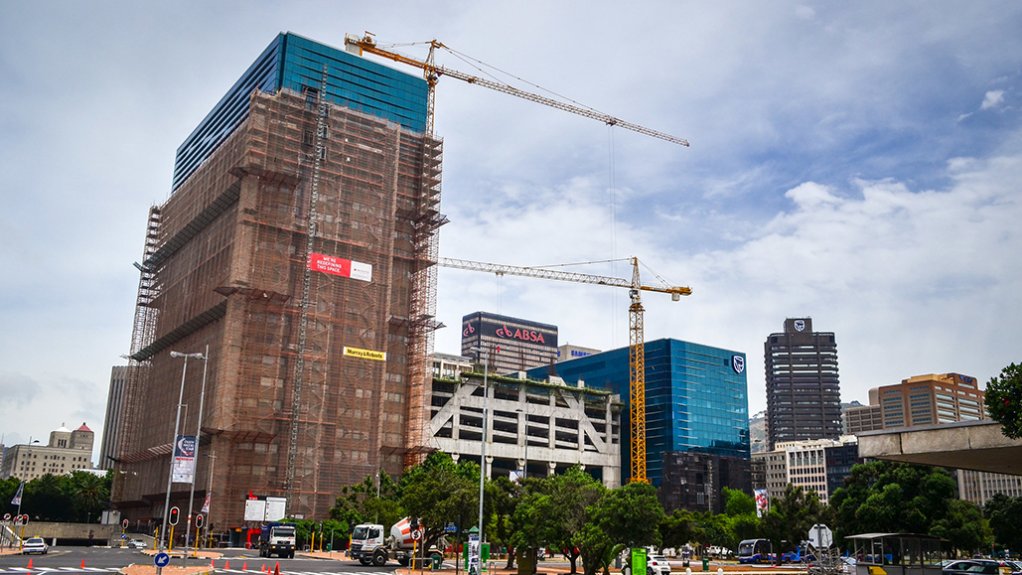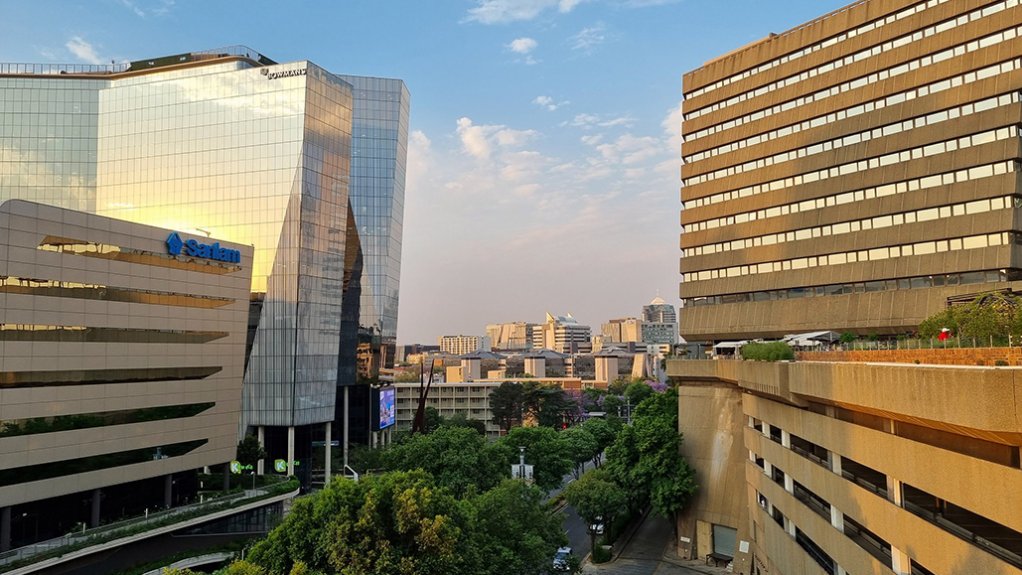The commercial property market experienced a 5.6% decline in sales activity in the first quarter of 2023, compared with the same quarter in 2022, owing to numerous factors, including rising interest rates and the oversupply of office space, says property valuations custodian South African Institute of Valuers (SAIV) president Dianne de Wet.
“I don’t think we’ve seen the full impact of the interest rate increases as this takes time to filter through and I believe that we may see another interest rate increase soon, even if it’s just a 25-basis point increase. There’s also the risk of the decline in vacancy rates being arrested,” notes De Wet.
She reports that the Covid-19 pandemic caused “a lot of harm” to the commercial space, but less so to industrial properties, which remained quite strong, outperforming the office and retail sectors. The expected return to the office has not happened, however, with remote and hybrid working arrangements becoming the “new normal”.
“Employers have realised that you don’t need a fixed desk for a particular employee, especially with the hybrid model, so now they hot desk. They can have three people using the same desk on different days of the week at different times and reduce their overhead costs. In this way property owners suffer,” De Wet highlights.
“Property owners are receiving lower rentals because tenants are able to negotiate with landlords due to these vacancies. This results in reduced net profits and a consequential reduction in asset values for commercial and industrial property owners.”
She says she is not sure whether conditions will ever return to pre-Covid levels and if they do, it is unlikely to happen any time soon, with the national vacancy rate sitting at around 14.9% at the beginning of the year.
Challenges in KwaZulu-Natal
The KwaZulu-Natal Branch Workshop, held on July 20, was aimed at updating industry experts on the latest international valuation standards, as well as environmental, social and governance and other pertinent issues.
“Our statutory body, the South African Council for Property Valuers Profession (SACPVP), and SAIV have adopted international valuation standards, meaning we have to conform to those standards as valuers, and if found wanting, we could be disciplined if a complaint is lodged with either SACPVP or SAIV. We also have to uphold professional conduct because we feel strongly about this as an institute,” she notes.
De Wet explains that the institute is also considering implementing regular testing of its members to keep high ethical standards front of mind. De Wet says ethics are not only a cornerstone of the institute, but that good ethics are what sets its members apart from the larger valuation community.
She says the seminar updated members on significant new developments in KwaZulu-Natal, two in particular being the Cato Ridge Inland Port Development and the Westown Development, which have been in the pipeline for a while.
“[The former] is designed as an inland port, where containers will be railed from the harbour to Cato Ridge and then collected from there and transported by road or rail to Gauteng. It is hoped that this will alleviate the problems that Durban Port and the surrounding areas are experiencing with traffic congestion.” Meanwhile, the Westown Development is one of eThekwini municipality’s catalytic projects with Tongaat Hulett (landowners) and the developer, Fundamentum. “It is a modern mixed-use development modelled on Waterfall City in Midrand.”
Construction Mafia
She notes that one of the major challenges industry is battling with is the construction mafia, which started a few years back as a consequence of the radical economic transformation movement, where people without any participation in the project would arrive at a construction site and then demand cuts from the tender.
She adds that when developers refused to give in to those demands, the mafia would threaten employees and shut down the site, often at gunpoint.
“The cost to the economy has been estimated as running into billions of rands which we can barely afford. Only now are steps being taken to put a stop to this behaviour. We are faced with serious challenges from the recent floods and damage to our ageing infrastructure and, in addition to loadshedding, we experience a lot of water outages owing to burst pipes and pumps being stolen or not being maintained.”
She also points out that the July 2021 riots and looting had a huge impact, but that she is hopeful that the local economy will be resuscitated with the developments under way.
Edited by: Nadine James
Features Deputy Editor
EMAIL THIS ARTICLE SAVE THIS ARTICLE
ARTICLE ENQUIRY
To subscribe email subscriptions@creamermedia.co.za or click here
To advertise email advertising@creamermedia.co.za or click here















